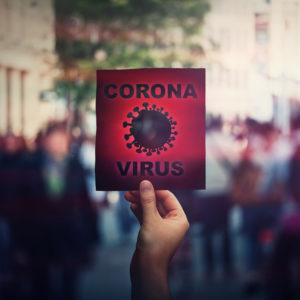When the electric grid goes down and folks are stressed, all hell is unleashed.
In 1977, the people of New York City were experiencing economic stress — including from the city’s near bankruptcy — and social stress, particularly from high crime including the then-unsolved “Son of Sam” murders.
When the city had a 24-hour blackout, more than 1,600 stores were looted and damaged, more than 1,000 fires ignited and dozens of city blocks destroyed. More than 500 police officers were injured.
Today, tensions are running high due to COVID-19 (coronavirus) and related income and health concerns. Some people are ready to assault anyone who jumps in front of them to get a package of toilet paper. Many parts of America are as combustible today as New York City in 1977.
The electric grid is essential for all aspects of modern life — including hospital care, food preservation, computer operations (i.e., many people’s ability to work), and at-home medical devices for the sick, elderly and disabled.
When countries attack one another, there is an excellent reason the grid is typically a top target. By knocking out electric power, an adversary is thrown into disarray.
To make sure our grid stays up, we need to make sure the people managing the grid stay healthy. Indeed, this must be a priority.
The highly-skilled, hard-to-replace and experienced professionals in the energy profession seldom can work from home. In fact, there is no record of a power line ever having been replaced remotely.
There are also significant limits to “social distancing” in power production. Line workers often must be near one another.
The engineers and other professionals in the control rooms of power plants and transmission facilities must be able to communicate immediately, directly and close to one another.
Having COVID-19 spread rapidly throughout a team of line workers or control room professionals would be disastrous. Even having to quarantine workers who turn out not to be infected will be quite disruptive to grid operations.
As such, governors and other emergency planners should facilitate COVID-19 tests for all essential power generation and transmission workers and have such workers periodically tested until this crisis is clearly over. This testing should be done for all such professionals, even if they feel fine.
Second, power producers and grid operators should put in place plans to ensure that essential personnel are not exposed to COVID-19. This probably will involve having some professionals live onsite at electric facilities, to avoid contact with outside people or areas from which COVID-19 may be contracted.
Third, utilities should stockpile those items that they are most likely to need for maintenance and grid repair. The potential of supply chain disruptions, or suppliers simply not being around to ship products, must not occur.
The good news in this situation is that power-generation professionals are used to dealing with stressful situations, particularly weather and other disasters that disrupt service. Today, the importance of their work ranks up there with nurses and first responders.
They should receive hazard pay — or at least significant bonuses — for the coming months and be put at the front of the line for COVID-19 testing. Policymakers should also listen to them about what is needed to keep the grid operating smoothly — and do it.
And heaven help us if we forget the importance of the grid and the people who keep it operating.

